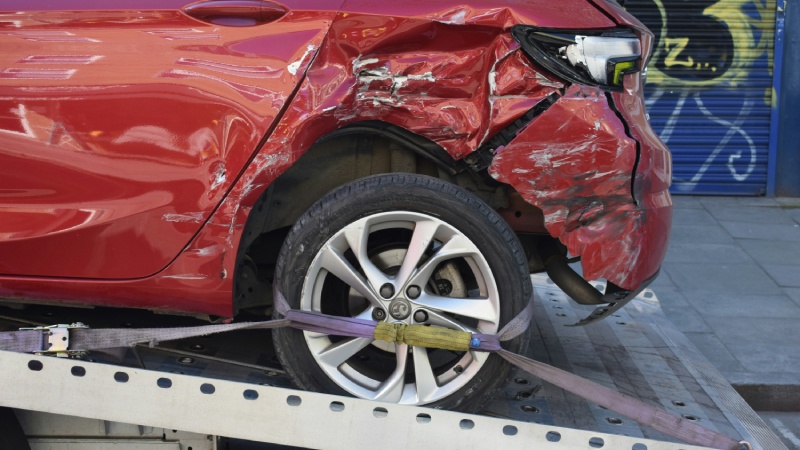
If you drive regularly, you probably understand that car accidents can happen anywhere, at any time. They can happen because of egregious and reckless conduct, like drinking and driving, or through no fault of anyone’s, due to freak accidents and unexpected occurrences.
But what are the root causes of most car accidents? And how can you avoid them?
The Root Causes of Most Car Accidents
Car accidents can happen as a result of countless factors, but these root causes tend to be the most common:
- Distracted driving. Even if you only take your eyes off the road for a few seconds, a single distraction can be devastating. Cars are extremely heavy, extremely fast machines, so losing control or failing to pay attention for even a short span of time can lead to a catastrophic accident. Even so, millions of people still text while driving or succumb to other distractions, such as applying makeup while driving or rubbernecking to see the aftermath of an accident on the side of the road.
- Impaired/fatigued driving. By now, we all should be acutely aware that intoxicated driving is inherently dangerous. But many people don’t realize that fatigued driving is often equally dangerous, and for the same reasons. If you’re not able to pay attention consistently and react promptly, you won’t be able to drive safely.
- Reckless driving. Many accidents occur because of reckless driving as well. Some people speed intentionally or change lanes without signaling out of impatience, laziness, or a general disregard for people around them. But these types of activities can lead to fatal accidents, especially if other drivers aren’t paying close attention.
- Failure to observe signs and warnings. Some accidents arise because of failure to observe signs and warnings. For example, if you don’t notice that a road is closed, you may drive your vehicle into a dangerous area. If you don’t pay attention to a yield sign, another driver could collide with you.
- Blind spots. While driving, we all have blind spots. Other drivers can lurk in our blind spots behind us on the road, and there may be areas we can’t see in intersections. If you aren’t appropriately identifying and correcting for these blind spots, you could end up in an accident because of it.
- Inclement weather. Unsurprisingly, bad weather also leads to increased rates of accidents. If the roads are covered in snow and ice, you may have greater difficulty controlling your vehicle – and far less visibility as well.
- Traffic. Heavy traffic conditions make accidents more likely, as there are more vehicles on the road, and those vehicles often engage in unpredictable starting and stopping motions.
- Mechanical issues. Less commonly, mechanical issues lead to accidents. If your brakes stop working, or if your car’s accelerator becomes stuck, you may end up in a collision.
- Chain reactions. Sometimes, more accidents occur because of a single, initiating accident. If the aftermath of a wreck is still on the road, it may be difficult for other cars to avoid. These “chain reaction” car accidents also make it difficult to figure out legal fault.
Preventing Car Accidents
Fortunately, many strategies can help you prevent car accidents:
- Observe and obey all laws and posted signs. First, observe and obey all laws and posted signs. These rules and regulations are there for your safety, so it’s in your best interests to follow them as closely as possible.
- Slow down and increase following distance. Consider driving more slowly and increasing your following distance. This combination of approaches gives you much more time to react to unexpected developments on the road ahead. Plus, if a collision does occur, it will occur at a lower speed, keeping you and your passengers safer.
- Avoid problematic conditions. Certain problematic conditions should be avoided whenever possible. If there’s a blizzard outside, consider staying home. If traffic is a consistent problem, consider leaving earlier to avoid it.
- Pay attention to your surroundings. Always pay close attention to your surroundings on the road. Even if you’re driving cautiously, someone else might be driving recklessly, and it’s your responsibility to be aware of them so you can avoid them.
- Never drive impaired or fatigued. Under no circumstances should you ever drive while intoxicated, impaired, or especially fatigued. You may be an experienced driver, but even the best drivers can’t overcome the risks of these impairments.
- Maintain your vehicle. Finally, maintain and inspect your vehicle regularly so you can take care of any mechanical issues before they lead to an accident.
While you’re at it, wear a seatbelt. Even with all these strategies in place, car accidents are still possible. But the more time and effort you spend driving safely and protecting yourself, the more likely you’ll be to survive an accident unscathed.